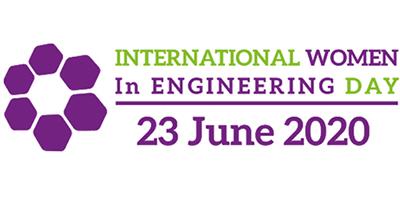Chair in Emerging Technologies, Susan Gourvenec, on how ocean engineers #ShapeTheWorld to celebrate International Women in Engineering Day #INWED20

International Women in Engineering Day celebrates the outstanding achievements of women engineers throughout the world and highlights the diverse career opportunities available to girls in this exciting industry. This year’s Women in Engineering Day, INWED20, celebrated on 23 June, highlighted how women engineers #ShapeTheWorld.
To celebrate International Women in Engineering Day 2020, The University of Southampton highlighted how some of the engineering academics working at Southampton #ShapeTheWorld. Chair in Emerging Technologies, Susan Gourvenec, shares her views on how ocean engineers #ShapeTheWorld and what she enjoys about being an engineer.
You can read the full article here.
Professor Susan Gourvenec
Royal Academy of Engineering Chair in Emerging Technologies in Intelligent & Resilient Ocean Engineering, Deputy Director of the Southampton Marine & Maritime Institute

What do you cover as an ocean engineer?
Ocean engineers are responsible for the life cycle of activities of designing, constructing, installing, operating and decommissioning engineered structures in the ocean.
There are many tens of thousands of structures in our oceans, tens of thousands of kilometres of pipelines and over a million kilometres of fibre optic cables. Together, these structures and networks provide energy, food and telecoms to populations around the globe. Ocean engineers are involved in characterising the seabed and metocean conditions at a site for a proposed development in order to determine the environmental parameters needed for design, in the design of the infrastructure, construction, installation, operation and safe decommissioning.
As Royal Academy of Engineering Chair in Emerging Technologies in Intelligent & Resilient Ocean Engineering, I drive change at all these stages of the engineered life cycle of ocean structures, developing tech-led ways to make them better – safer, more sustainable and more efficient.
What is one project you’re focusing on that is helping shape the world?
A key focus of my work is decarbonisation of the energy sector, which is central to addressing climate change. The oceans provide space and resources for renewable electricity generation. Our electricity demand is growing due to an increasing and increasingly wealthy global population and is set to increase more in the future to include the capacity to create future liquid fuels (e.g. hydrogen, ammonia, methanol) to replace fossil fuels for transport.
Emerging technologies offer immense potential to upscale the generation of ocean renewable energy in a safer and more efficient manner. Upscaling our use of the oceans must go hand-in-hand with increased knowledge of the effect of our interventions. Emerging technologies offer the potential to gather and interpret the necessary environmental, operational and structural data in a time-frame such that our impact can be assessed and our response can be effective.
What do you enjoy about being an engineer?
I enjoy a good challenge and playing my part in finding a solution. I enjoy the ability to challenge the status quo and enable positive change. I particularly enjoy being an engineer in a multi-disciplinary environment, with the richness of diversity of challenges and individuals that presents.
Find out more about International Women in Engineering Day here.